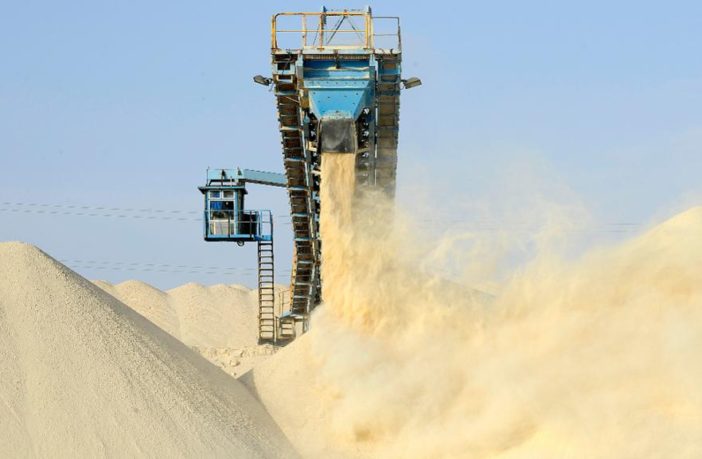Forbes Dominic DudleyContributor
Moroccan exports of phosphates from the disputed territory of Western Sahara have fallen to their lowest level since at least 2012, with volumes almost halving in 2019 to 1.03 million tonnes, worth an estimated $90 million.
A year earlier exports had been 1.9 million tonnes, worth some $164 million. The average annual total from 2012-2018 was 1.8 million tonnes. The figures are contained in a report, P for Plunder, released today by pressure group Western Sahara Resource Watch (WSRW), which campaigns against Morocco’s presence in the territory. Western Sahara was seized by Morocco in 1975 in a move which has never been internationally recognized.
According to WSRW, there were just 19 shipments of phosphate from the Western Saharan port of Laayoune in 2019, down from 33 the year before. “Morocco has never exported a volume of phosphate rock from Western Sahara that is as low as in 2019,” it said in its report.

Today In: Business
The phosphate rock from the territory comes from the Boucraa mine, which is run by the Moroccan state-owned OCP via its subsidiary Phosphates de Boucraa (Phosboucraa). OCP has said in the past its production capacity in Western Sahara is 2.6 million tonnes a year, around 8% of its total extraction capacity. It is clearly operating a long way below that figure at the moment though and international pressure on those linked to the trade may be a key reason.
Ships carrying Western Saharan phosphate were detained in South Africa and Panama in 2017, with local courts asked to rule on the legality of their cargo. OCP retreated from the legal battle in South Africa ahead of a planned trial about the goods held aboard the NM Cherry Blossom, while the court in Panama ruled it did not have the right to hear the case there and the bulk carrier involved in that incident, the Ultra Innovation, was able to continue on its journey.
The risk of further court action may have had an impact on other shipments. According to WSRW, since 2017 no shipments of Western Saharan phosphates have gone via the Cape of Good Hope or the Panama Canal. Instead, the cargos either go around the bottom of South America on their way to New Zealand, or via the Suez Canal to customers in Asia.
Sales to North America have also come to a halt since December 2018 – it had been the biggest overseas market for OCP, accounting for 900,000 tonnes that year. OCP appears to have had difficulty finding new buyers to make up the shortfall. China and India bought slightly more in 2019 than the year before and there was a new customer in Brazil which bought 70,400 tonnes, but sales to New Zealand were down by 110,000 tonnes.
A spokesman for OCP acknowledged exports from the Boucraa mine fell between 2018 and 2019 but said this was in line with a “global decline in demand for phosphate rock” and was “mainly caused by the end of a contract with one of our clients, who decided to repurpose two of its phosphate plants for strategic reasons and focus on nitrogen and potash-based products.”
In the past, OCP has insisted its operations in Western Sahara are legitimate, on the basis of a 2002 legal opinion from the United Nations which stated that the development of natural resources in the territory could be justified if they benefited the local people. OCP says its activities provide employment and other benefits to the local economy, but it acknowledged some risks to its position in a 2015 bond prospectus to the Irish Stock Exchange.
“Any change in the applicable legal standard, or any adverse determination by the United Nations or other relevant authorities about the benefits of the Group’s operations to the local people could disrupt the Group’s operations … or adversely impact existing or potential customers’ willingness to purchase the phosphate rock produced in Boucraa,” it said.
Despite the sharp drop in sales last year, OCP appears set on continuing to push for further exports from Western Sahara. The company’s spokesman said it was “confident” about the future of Phosboucraa’s operations. “We are making substantial investments to upgrade those operations by building an integrated fertilizer complex in Laayoune,” he said. The project involves an investment of some $2 billion.







